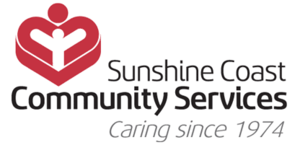Client Rights:
Complaints and Conflict Resolution
Sunshine Coast Community Services provides a fair, consistent and expeditious process to guide dispute resolution when the Society receives complaints from clients and/or community partners regarding violations of client rights or allegations of employee violations of their code of ethics.
Statement of Client Rights
Every person supported by Community Services and employees who work for the Society’s community partners share the rights as outlined in the Canadian Charter of Rights and Freedoms, the BC Human Rights Code, the rights identified by the United Nations Universal Declaration of Human Rights and the United Nations Convention on the Rights of Persons with Disabilities. The Society espouses the following plain language explanation addressed to those we serve:
“Rights are the rules that help make people equal. You are entitled to the same rights under the law as everyone else because you are a person and a citizen. Some rights are there when you are born. These are often called Human Rights because every human being has them. Some rights are yours when you become old enough. Some rights are yours because you live in Canada. There are laws to help make sure no one takes away your rights. Rights, which are upheld by law, make sure no one takes away your rights. Rights that are upheld by law are known as legal rights.” People First, Canada
Sunshine Coast Community Services Society recognizes that dissatisfaction/conflict may arise at any stage in the service delivery relationship. The parties experiencing disagreement work together in an attempt to reach a solution. Consensus is the goal of the conflict resolution process. No reprisal will result from submission of a complaint. Persons served will be treated with respect and dignity.
- Staff will inform clients about their rights pertaining to making complaints and conflict resolution via the client orientation and/or the client handbook.
- Where a conflict arises, clients and/or family members will be directed to follow the procedures outlined below.
- Each program will conduct annual reviews of complaints to determine trends, areas for performance improvement and actions to be taken.
– clients, family members, community members / partners –
People have a responsibility to tell the truth, and be respectful and have the right to a fair process and timely response. An advocate or other types of assistance may be provided.
- The client and/or family member, advocate or community member/partner is to discuss their issue or concern with the appropriate supervisor or the Executive Director.
- The supervisor or Executive Director will investigate the circumstances with the assistance of the complainant and staff members concerned. All discussions will be documented.
- The supervisor or Executive Director will discuss the findings and reach a decision with the involved parties within five working days of receiving the complaint. If appropriate, the services of a mediator may be engaged to help resolve the conflict.
- A report outlining the investigation process, results and decision is prepared by the supervisor or Executive Director and given to the complainant.
- Should the complainant continue to be dissatisfied a formal complaint may be submitted in writing directly to the Executive Director. Assistance in writing the complaint may be provided. Anonymous complaints will not be acted upon. The investigation may be revisited and all individuals involved will be asked to review the situation. A decision by the Executive Director will be submitted in writing to the complainant.
- Copies of complaints and responses are filed with the appropriate Program Director.
- If the complaint is not resolved in fourteen days, the complainant may make a written submission to the President of the Board.
- The President will consult with the Executive Director, the Executive Committee and/or the Board as needed and will determine an appropriate course of action to resolve the complaint. The investigation may be re-visited and all individuals involved will be asked to review the situation. A decision by the President will be submitted in writing to the complainant.
- Whenever a stipulated time is mentioned herein, the said time may be extended by mutual consent of the parties.
- If the complaint is withdrawn then it shall be stricken from the record.
- A complaint that has been resolved to the mutual satisfaction of both parties shall be filed in the personnel file of the staff member and is to be treated as a confidential record.

 Give Today
Give Today  Get Involved
Get Involved  Stay Connected
Stay Connected